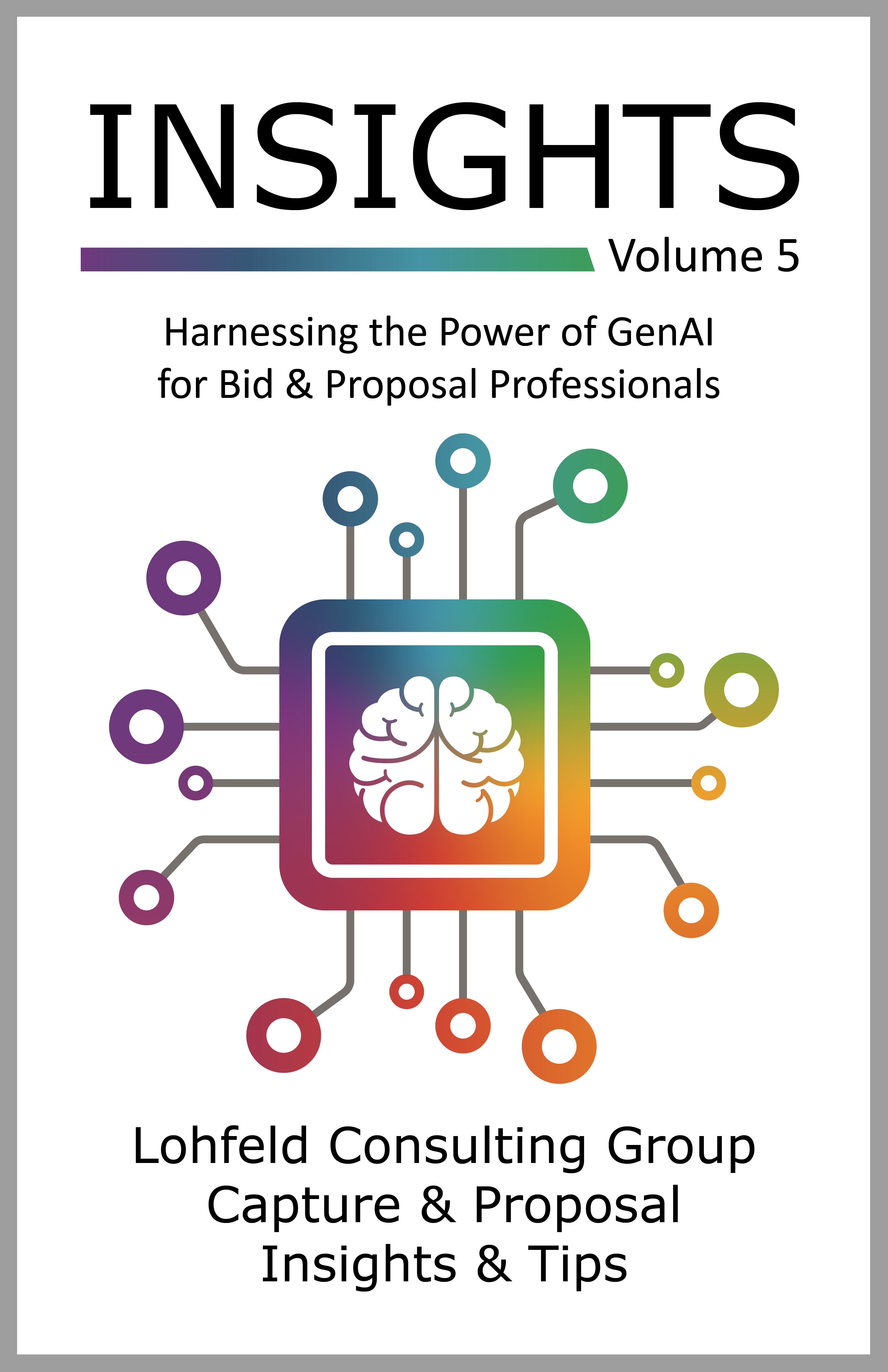Increase Your Preparedness for Self-Scoring Proposals

The popularity of self-scoring proposals demands a new level of preparedness from bid and proposal professionals. This adaptive method, where contractors evaluate their qualifications against criteria and substantiate their capabilities with evidence, has become increasingly popular among federal agencies.
Understanding and mastering self-scoring proposals is not just advantageous—it’s imperative for winning government-wide acquisition contracts (GWACs) and many indefinite-delivery/indefinite-quantity contracts (IDIQs).
The Emergence of Self-Scoring Proposals
Introduced with the General Services Administration (GSA) OASIS GWAC in 2013, the self-scoring methodology has rapidly expanded across various GWACs, including:
- GSA Alliant 3 and OASIS+
- Department of Homeland Security (DHS) PACTS III
- Department of Health and Human Services (HHS) CIO-SP4
This method requires contractors to demonstrate their competencies, streamlining the evaluation process for government acquisition vehicles and setting a new standard for procurement efficiency.
Why Bid and Proposal Professionals Should Take Notice
The trend toward self-scoring proposals has and will continue to reshape the competitive landscape of government contracting. For bid and proposal professionals, this represents an opportunity to streamline their approach, differentiate their bids, and effectively demonstrate value to government clients. Mastering the art of self-scoring can lead to a competitive edge, ensuring that proposals not only meet but exceed government expectations.
Addressing Procurement Challenges
Self-scoring systems aim to alleviate common procurement hurdles by:
- Encouraging self-assessment, which deters unqualified bids
- Reducing the government’s administrative burden in credential verification
- Facilitating direct comparisons among competing proposals
The government, in turn, validates compliance, assesses the substantiated claims, and selects the most qualified bidders based on verified scores.
Strategic Preparation for Self-Scoring Proposals Success
Table 1 describes the steps to prepare for your self-scoring proposal.
Table 1: Follow these steps to prepare for and evaluate your proposal’s score
| Step | Description of Steps |
| Early Qualification Assessment | Determine your alignment with bid requirements to decide on pursuit. |
| Detailed Documentation | Meticulously document relevant experience and capabilities that qualify for scoring points. |
| Critical Analysis | Perform gap analyses to identify potential areas for score improvement. |
| Evidence-Based Proposal Development | Align your proposal development process with the scoring criteria, ensuring substantiation for all claims. |
| Score Optimization | Continuously seek ways to enhance your proposal’s score through strategic decisions and comprehensive documentation. You can improve your company’s score by acquiring industry-standard certifications, many of which are required to participate. These certifications include the International Organization for Standardization (ISO) and the Capability Maturity Model Integration (CMMI) certification. Additionally, consider acquiring government security clearances, certified purchasing systems, relationships with Historically Black Colleges and Universities (HBCUs), and AbilityOne contractors to optimize your score. |
Empowering Tools and Practices
Consider constructing tools and processes that can aid in tracking and managing your GWAC or IDIQ contracts and proposals to optimize your score:
- Implement a robust compliance matrix and score tracker to manage and validate your claims effectively.
- Organize a proposal library to streamline the evidence-collection process.
- Perform independent documentation reviews focusing on compliance, consistency, and accuracy.
- Engage customers early for narrative validation, especially in areas showcasing innovation or emerging technologies.
The experiences with GSA Alliant 3 and OASIS+ highlight the criticality of well-prepared documentation, strategic alignment with scoring criteria, and the power of clear and compelling evidence in securing government contracts.
Conclusion: A Self-Scoring Proposals Call to Action
The ascendancy of self-scoring proposals in government contracting mandates a refined approach from bid and proposal professionals. By mastering this method, characterized by rigorous self-evaluation, comprehensive evidence presentation, and independent reviews, bid and proposal professionals can distinguish their bids and enhance their chances of securing government contracts. Strategic adoption of these practices not only streamlines the self-scoring procurement process but also amplifies the competitive edge in a landscape increasingly defined by precision and accountability.
By Brenda Crist, Vice President at Lohfeld Consulting Group, MPA, CPP APMP Fellow
Lohfeld Consulting Group has proven results specializing in helping companies create winning captures and proposals. As the premier capture and proposal services consulting firm focused exclusively on government markets, we provide expert assistance to government contractors in Capture Planning and Strategy, Proposal Management and Writing, Capture and Proposal Process and Infrastructure, and Training. In the last 3 years, we’ve supported over 550 proposals winning more than $170B for our clients—including the Top 10 government contractors. Lohfeld Consulting Group is your “go-to” capture and proposal source! Start winning by contacting us at www.lohfeld.seablaze.website and join us on LinkedIn, Facebook, and YouTube(TM) .
Paperback or Kindle
10 steps to creating high-scoring proposals
by Bob Lohfeld
contributors Edited by Beth Wingate
Subscribe to our free ebrief
Teaming friends, frenemies, and enemies—12 tips to mitigate harmful effects
Did you know that contracting officers spend up to 20% of their time mitigating disputes between teaming partners? In an informal poll we conducted on LinkedIn last month, 40% of respondents classified their teaming partners as “frenemies” on their last bid.
Explore Further
- Advice (489)
- AI (14)
- APMP (17)
- Army MAPS Contracts (2)
- Business Development (226)
- Capture Management (204)
- Complex Technology Grants Services (9)
- Favorite Books (5)
- Go-to-Market (27)
- Graphics (5)
- Lohfeld Books (2)
- NASA SEWP VI Contracts (2)
- Navy SeaPort-NxG Contracts (2)
- NIST MSE Grants (1)
- NIST NAPMP Grants (2)
- Past Performance (59)
- Post-submission Phase (14)
- Pre-RFP Preparation (215)
- Proposal Management (285)
- Proposal Production (64)
- Proposal Reviews (29)
- Proposal Writing (88)
- Pursuit Phase (90)
- Research Report (2)
- Resources (59)
- Tools & Tips (311)
- Training (10)
- Uncategorized (218)

Sign Up for INSIGHTS and Download your FREE book
We'd love to help you with your proposals. Enjoy our complimentary Lohfeld Consulting Group Capture & Proposal Insights & Tips book with your FREE subscription to our Insights Newsletter.
GET YOUR FREE BOOK




